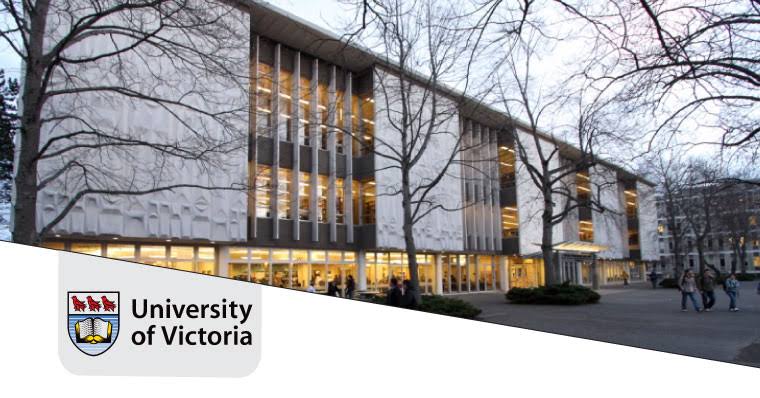Scholarship programs across Canada and globally are not solely awarded based on academic excellence anymore. As of July 2025, many institutions, foundations, and private sponsors place a significant emphasis on a student’s commitment to community service and leadership. Volunteer work has become a crucial component in scholarship applications, reflecting not only a candidate’s values and passion but also their willingness to create positive change beyond the classroom.
For students seeking to stand out in a highly competitive scholarship pool, volunteering is more than just an extracurricular activity—it’s a reflection of character, initiative, and a sense of civic responsibility. Understanding how and why this matters can greatly increase your chances of receiving financial support for education.
Why Volunteer Experience Matters in Scholarship Applications
Scholarship committees often receive thousands of applications from students with similar grades and test scores. What sets one student apart from another is often their extracurricular involvement—particularly volunteerism. Community service demonstrates qualities like compassion, dedication, time management, and the ability to contribute meaningfully to society.
Many scholarship providers aim to invest in individuals who will make a difference, not only academically but socially. Volunteer work helps to illustrate that you are engaged, proactive, and aligned with the values of giving back—traits that resonate with many donors and educational institutions.
Common Types of Scholarships That Require Volunteer Work
Several types of scholarships either require or prioritize volunteer experience. These include:
- Community Service Scholarships – Specifically reward students who have spent significant time helping their community.
- Leadership-Based Scholarships – Value volunteer leadership roles, such as organizing events or managing peer programs.
- Institutional Scholarships – Offered by universities and colleges, often taking into account a student’s impact on their school or neighborhood through service.
- Nonprofit or Foundation Awards – Provided by humanitarian organizations that prioritize applicants who share their mission and values through volunteerism.
Each of these scholarships uses community service as a key metric in assessing a student’s commitment to causes beyond academics.
How Volunteerism Enhances Personal Growth and Application Strength
Beyond appealing to scholarship panels, volunteer work contributes to personal and academic development. Students gain real-world experience, build confidence, and enhance soft skills like communication, teamwork, and problem-solving. These are qualities that scholarship reviewers often look for when assessing future leaders.
Additionally, volunteering can shape a student’s long-term goals. For instance, working at a hospital may inspire a medical career, while mentoring younger students may spark an interest in education or youth advocacy. These experiences make scholarship essays more genuine and compelling.
Where to Volunteer and How to Document It
To make your volunteer experience count, you must select causes that align with your interests and allow you to make a measurable impact. Common areas include:
- Local food banks and shelters
- Nonprofit organizations and NGOs
- Environmental clean-up initiatives
- School-based clubs and student councils
- Hospitals, libraries, and elderly care centers
- Youth mentorship programs and tutoring services
When volunteering, always keep detailed records of your service, including:
- Hours contributed
- Nature of the tasks
- Leadership roles held
- Supervisor contact details
- Outcomes or improvements made during your involvement
Accurate documentation will help validate your experience and make it easier to reference in applications or interviews.
How to Highlight Volunteer Work in Scholarship Applications
To effectively present your volunteer history:
- Include it in your resume or CV under a dedicated section like “Community Involvement.”
- Write compelling essays that focus on specific stories or turning points from your service.
- Secure reference letters from volunteer supervisors who can vouch for your work ethic and impact.
- Quantify your contributions by citing how many people were helped, how long you served, and what outcomes were achieved.
Rather than listing roles, focus on what you learned and how the experience shaped your perspective or goals. Authentic storytelling creates a lasting impression.
Balancing Volunteer Work with Academics
One common concern is whether volunteering will take away from study time. In reality, effective time management can allow students to balance both. Even a few hours a week over several months can result in a substantial contribution.
Volunteering also helps build better habits—students often become more organized and purposeful, which can improve academic performance in the long run. Scholarships reward students who can maintain this balance while still demonstrating commitment to their communities.
Long-Term Benefits of Volunteer Experience
Even beyond scholarship eligibility, the habit of volunteering has long-term benefits. It can lead to future job opportunities, strengthen university applications, and build a strong professional network. Many post-secondary institutions and employers look favorably on candidates with proven community engagement.
In addition, volunteering fosters empathy, social awareness, and global citizenship—traits essential in today’s interconnected world.
Conclusion
Volunteer work is not just a way to “check a box” on a scholarship application—it’s a powerful expression of who you are and what you stand for. It showcases your readiness to lead, your passion for change, and your dedication to service.
For students hoping to secure scholarships and stand out in a crowded field, community service may be the edge you need. By giving your time, energy, and heart to meaningful causes, you not only enrich the lives of others—you significantly enhance your own opportunities for academic and personal growth.



